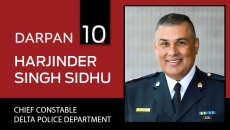Prime Minister Mark Carney's critics have been asking pointed questions lately about the assets in the former central banker's blind trust — a tool meant to allow politicians to avoid conflicts of interest. How do blind trusts work?
What is a blind trust?
A trust is a legal arrangement that forms whenever a beneficiary's assets, like stocks and bonds, are managed by a trustee.
In a blind trust, an individual's assets are managed by an arm's-length third party with no pre-existing personal or professional relationship with the beneficiary.
That third-party adviser manages the individual's assets — making trades and sales and purchasing new investments — all without the beneficiary's knowledge for as long as the trust is in place.
Why do government officials need blind trusts?
Jason Heath, managing director at Objective Financial Partners, said that a beneficiary in a blind trust gets an idea of how their assets are performing from a statement issued at the end of each quarter.
But the blind trust prevents the beneficiary from knowing more than that total shift in value. The performance of individual investments in a blind trust, for example, is concealed from the beneficiary.
“It would be high-level stuff, not things that a politician would be able to act upon," Heath said.
"And that's the whole idea. You're meant to be indifferent as to policy decisions that you're making and proposing and how it might impact your own investments.”
Carney is not the only government official who requires a blind trust.
All federal ministers, deputy ministers, agency heads, parliamentary secretaries and some ministerial staff are expected to put their assets into blind trusts to satisfy the conflict of interest and ethics commissioner, who reviews the disclosures of public officer holders.
New ministers such as Carney have 60 days after their appointment to disclose their assets and liabilities to the ethics commissioner. They have 60 days after that point in which to make a public declaration of assets.
Ian Stedman, associate professor in the School of Public Policy and Administration at York University, said that public declaration can report liabilities like mortgages, sources of income or investment properties, but does not offer a line-by-line breakdown of the number and value of the individual's investments.
"That stuff would never be publicly disclosed," he said.
Are blind trusts truly blind?
Stedman and Heath both said that once assets are placed in a blind trust, it's impossible to know exactly which assets remain in a particular portfolio.
The ethics commissioner's website says that a public office holder can submit "general investment instructions" in writing to the trustee through the commissioner, who must approve the instructions in advance. Beneficiaries cannot direct specific changes to their portfolios.
Stedman said all communication between a blind trust's beneficiary and trustee must flow through the commissioner's office — no back-channels allowed.
Heath said a blind trust is likely to be managed like any other portfolio, with a few adjustments made here and there, but it's rare for trustees to make sweeping changes.
Stedman said "it's very unlikely" that a trustee for a blind trust portfolio that's already set up according to the beneficiary's risk tolerance would "rock the boat."
In theory, a trustee could sell off every single asset in a blind trust and replace them with completely new investments.
"But really, that's probably not how the world works if you're a trustee and you have to act in the best interest of the person whose money you're managing," Stedman said.
Are blind trusts good enough for government work?
Carney floated in a press conference on Tuesday that he likely would get "screens" set up through the ethics commissioner that would automatically recuse him from any decisions that could present a conflict.
Stedman said putting up screens like this would be a good "prophylactic" that would build trust among Canadians, since he may still have a general idea of his assets based on the composition of his portfolio before taking office.
“He would say, 'I can't be 100 per cent sure, it's in a blind trust, but I'm going to make sure that in case that is what's still my portfolio, I'm not making decisions that could impact its value,'” Stedman said.






